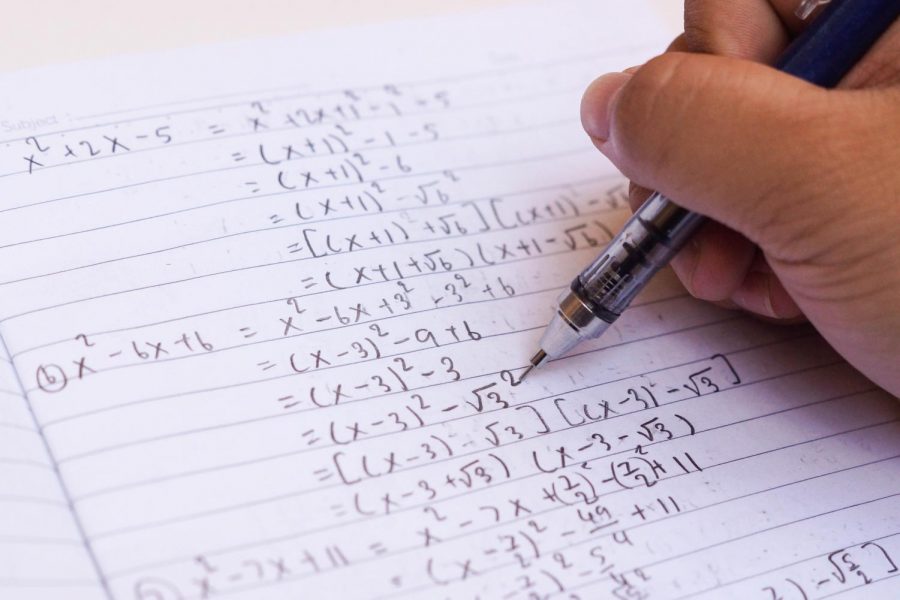Project to Complete Incompletes helps math students finish classes
Math tutors helped students with the grade of Incomplete finish their courses last semester in a new program called Project to Complete Incompletes.
April 14, 2021
With math students requesting the grade of Incomplete in the double digits during the spring and fall 2020 semesters, faculty members came up with a plan to help them catch up and pass their courses: They assigned each one a tutor once the semester ended.
The result: Sixteen of the 18 tutored students finished their developmental courses with passing grades, and 13 of them enrolled in classes again this spring, an outcome professor Robyn Toman called “fantastic.”
Professors assign the grade of Incomplete to students who run into trouble finishing a course, usually because of circumstances out of their control—like the pandemic. Those students may complete the work after the semester ends on a schedule set by the professor.
“We had a problem,” said Toman, co-creator of the Project to Complete Incompletes. “We noticed that once COVID hit, we started having more students, especially in the developmental [math] classes, who were getting Incomplete grades. They just weren’t able to finish the courses because life got so difficult for some of them.”
Assistant Dean Arthur Cimiluca said the tutoring program is a way to give students more opportunities to succeed.
“We don’t want to fail students in this environment because of any hardships they have during the pandemic,” he said. “That’s one reason why there are a lot more Incompletes.”
According to Cimiluca, it was Toman’s idea to create the Project to Complete Incompletes.
“I’m the one who called the students, convinced them to get started with a tutor … helped them get a schedule set up on a regular basis each week, helped them set goals, kept track of them as they went along and followed up with them,” Toman said.
Others who worked on the project were math professor Thao-Nhi Luu, tutors Nathaniel Cook and Stacey St. Hilaire, and Math First Lab managers Nicki Longworth and Ashley Rucker.
“We decided since we have winter break off and we have some tutors who were hungry to work over winter break because they needed the extra money, why don’t we try helping students finish Incompletes?” Toman said. “It was really just something we decided to try to see if it would work and we had the support of the department to finance the tutors, so I said, “Let’s do it.”
According to Cook, a baking and pastry student who doubles as a math tutor, he met with students at least twice a week.
“I take as much time as I can to make sure that [the students] fully understand the material before going into the test,” Cook said. “I worked with [students] to try to see how their thought process worked and used that as a way of trying to basically translate the work into something that would be more approachable to them so they would understand it better.”
St. Hilaire, a May 2020 AACC graduate and part-time math tutor, said she helped keep the students motivated.
“I notice when the students fail these classes, it really drops their motivation, and that’s the last thing we want to happen to them,” she said.
She added, “[AACC] is learning that we have to cope in other ways and help our students.”
Toman said her department plans to continue the program and expand it to students in all developmental math courses.
Even though some of the students in the project were reluctant to work with a tutor at first, about two thirds of them said they were happy with the program by the time they finished the work.
According to Toman, some students are anxious about taking math and science courses because the assignments can be difficult.
“[We want to] make sure students know that they can get help and that it’s not scary to get help,” Toman said. “It could be something very helpful, pleasant and beneficial.”












